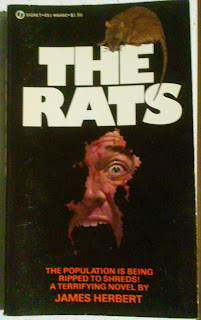 |
| Marion Boyars Publishers Ltd, 2005 |
We first meet Harry as an arrogant young man with a promising future, and a yen for married women. When they're married, you see, you get none of the commitments, no virginal hangups, no baggage that gets in the way of a young stud having a good time. You score and move on. No tearful goodbyes or messy breakups. You hit it and quit it, and Harry is a master at this game of hunt and conquest. Harry works in Manhattan and lives in Brooklyn with his parents. Between his job, his commute and his home turf there is no shortage of young married women whom Harry can work his charms on. Finding a broad without cashing in on his freedom is Harry's chief goal in life. But, if you've ever read anything by Hubert Selby before, you know that shit is going to go south for our Harry in a bad and ugly way. No one survives Selby's world unscathed.
The first part of the novel follows Harry as he pursues his hobby. Except for his job at the firm, Harry is free to pursue his game without worry of commitment. And things are fine...at first. He spends his lunch hours watching the women in the city, flirting, chatting them up, sharing lunches with them, always on the prowl for his next score while playing the confidant for them, nurturing their lonely desires. But inside, the pressure builds. The game has a way of encroaching on his limited time that he must devote to his job. His boss and coworkers are noticing his long absences from his desk. His secretary covers for him best she can but eventually his boss has the "come-to-Jesus" lecture about Harry's responsibility to his job. After all, Harry is one of the brightest young men in the firm, a rising star, a guy who's going places, as long as he puts his nose to the grindstone and puts in the time demanded of him at the office. Yeah, Harry knows this...but inside, that desire for the game of conquest is boiling...burning him up inside. He needs that release that only random sex with a woman can satisfy.
Eventually, Harry's seemingly careless attitude at work loses him a promotion. One hour too many in a hourly motel during lunch costs him an advance in his career. He's got to get his life under control, put his ass to work, get his mind right with his job and earn back the respect of his bosses...but there is still the women in the park and in the cafeterias and at the department stores, and the desire for release won't go away.
Then, a turn of events occur for Harry. He meets another young woman, Linda, at his firm during a management picnic at the country club. He feels something for Linda unlike anything he's ever felt for a broad before. Could it be an actual desire to get to know her? To date her? To build a relationship with her? He asks to drive her home and a budding romance between them begins. His desire for strange is pushed aside. His relationship with Linda has brought his wayward desires back onto the straight and narrow. His work returns to to the promise that his bosses once held for him. More responsibility and promotions follow. He and Linda get engaged. He is once again a man in control. Until one night after celebrating a successful deal with a client, drinks and hookers are called for. And the need for conquest returns. Guilt and remorse haunt Harry. Fear of losing Linda hangs over him daily. For a while, marriage with Linda was enough...now it's something to be sheltered from his inner demon. This demon who haunts the wild side of the street, who sates his need on skanks and prostitutes, junkies and addicts, diseased and wasted, scabbed holes to be pounded in self-loathing and disgust. And it's still not enough. Harry begins to skip out on paying restaurant tabs, a new thrill is developed in the wake of his desires. Petty thievery, raiding office desks after hours for change, jewelry, whatever he could find and throw away. But the addiction wants more...and thoughts of murder begin to surface. Only who to murder?
This is one of those novels that I couldn't put down. I tried reading American Psycho once, somewhere back in the mid-nineties, but just couldn't get into it. The Demon works on a level that many readers may find uncomfortable, which is clearly the point. Stylistically, it's similar to Selby's other novels I've read in it's relentless, unforgiving narrative. You want to look away, but it's hard to. You care about the characters, yet you're kept at a distance from them by their abandon and betrayals. You close the book and thank the fates that you're not like them...you hope.

